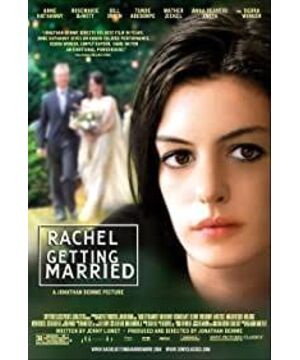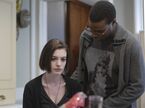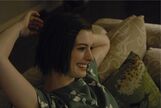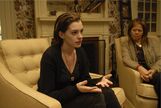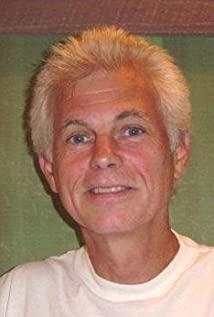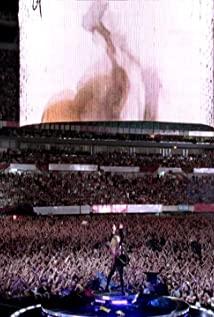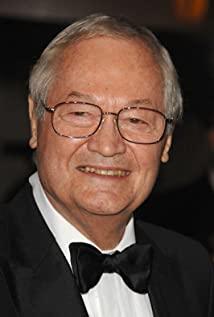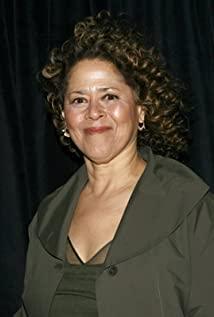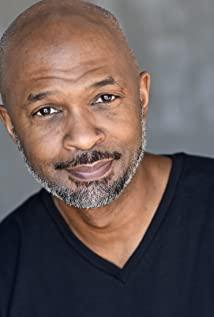First of all, I have to say that I don't like this name. Not only is it not creative, but it also doesn't fit in with the protagonist of this film. The only feeling is that it is rigid, dull, and nothing new. Compared with these mainland translated names, our compatriots in Hong Kong and Taiwan have much more vivid thoughts. "Lolita" is translated into "A Tree of Pears and Begonias", and "The Sound of Music" is translated into "Sound of Music". ", the feeling of reverie came out at once. The title of the film is an important part of the box office revenue and CD sales. I have always believed this. If the subjective imagination is used well when the title is named, the film will be more exciting.
Of course, there are also people who steal chickens without losing money. "Australia in Troubled Times" is such an unfortunate victim. Originally, I wanted to ride the wind of Gone with the Wind, but who knew that riding on the back of a sheep would actually run farther and farther, so it got its name? Don't worry about your life, just improve it little by little. It's like "Rachel's Wedding." I really don't like it. It might as well be called "Sister's Grand Wedding." As for the other translation of this film, "The Marriage of Love and Pain", it follows "Australia's Troubled Times." In the same bloody way, if it is really straightened, it will definitely kill a group of people.
In fact, not only are the names clichés, but the techniques are also clichés. Jonathan Demme probably got used to the "Silence of the Lambs" series, and is always used to fast panning and follow-up shots. If such techniques in thrillers cause the camera to move,If it acts as the third eye behind the character and can create a sense of horror with the "snap back" effect of the fast turn, then it is a bit nondescript for him to use this kind of method in low-cost family dramas. There is also the "shaking" effect of Demi's lens. If there is a sense of breathing under nerve compression in a horror film, then it will be superfluous to move it into a life film. In fact, the director's shot scheduling effect gave me the overall feeling that I was shooting a family DV (of course, I was trained). Too much hand-held shooting made me feel dizzy. In fact, family dramas don't have to be like this. The scheduling in "Carefree" is not only achieved by the camera but by the actors themselves.
Jonathan Demme said, "We all agreed on this; let the camera really record everything that happened, without any prearrangement." Perhaps it is this kind of "natural for nature" that allows inspiration to guide everything. "The attitude of the film is at play, the technique of the film seems to be indifferent, and the conflicts originally set up in the script also appear deliberate. Anne Hathaway's heroine, Cam, had an affair with the best man at the wedding just over ten minutes into the film. At this time, the audience had not yet warmed up, and Jonathan Demme accepted it as soon as he saw it. At Duanzi, it is estimated that Anne Hathaway has played a lot of good girls, and she is not used to prominent performances. It basically belongs to one area.
The wedding scene is the focal point of the film. The director wanted to outline the various aspects of life, so white skin, black skin, and yellow skin sat on the long table of the wedding banquet together and talked with each other, without any thought of racial discrimination. If Martin Luther King, Jr. sees this perfect picture that symbolizes harmony in the world, he really doesn't know what it will be like. As for the married couple, Rachel is white and Sidney is black. This black and white pair not only gave those racists a loud slap in the face but also coincided with the main theme of black and white harmony after the new US President Barack Obama took office. Cheer's parents saw their son-in-law and mother-in-law, who were as dark as chocolate, and they were both smiling, not embarrassed at all because their daughter found a nigger. Obviously, the old lady's concept of "harmonious society" is no better than ours. How much
The film was a comedy before the wedding, and then turned into a tragedy, in which Anne Hathaway acted as a bombshell and earned herself an Oscar nomination. The first half of the comedy starts with La Jiachang and continues until the wedding speech. This process is a bit like "Careless," except that the characters in the film laugh, and the audience can watch it with a cold eye. Speaking of which, the laughter in the movie is divided into two levels: active laughter and passive laughter. The former is from the heart, just like when we watch "Crazy Racing." We can laugh until we cover our belly; the latter is a bit low-level, relying on the characters' constant smile. Laughing leads the audience to laugh. I don't know how the actors laughed when they read those lines that were originally uncomedic. As for the group cross-talk of the wedding blessing, it is obviously a concocted joke. One person says a paragraph, which is probably copied from a joke book, and the more deliberate blessing is also devoted to the main theme of black and white harmony.
The story to be told in the film is also spread out in this scene. Although there are many people talking at the wedding, the focus is on the Rachel family. Rachel's sister Cam went to her brother-in-law's house to attend the wedding. When she saw that her dress was not a bridesmaid dress, it was a big deal. Losing his temper, threatening to tear up tickets with his sister and forcing his sister and an old friend from childhood to break their faces, we can basically recognize that this is going to kick the gym, and wait until my sister says that she is happy (this is the product of the combination of black and white culture). Relatives and friends were all congratulating him, but the younger sister was unhappy and talking nonsense, as if the child had a grudge against him. The so-called mountain rain is about to come, and the wind is blowing hard, and it can't stop it. What should erupt is still going to erupt, but the director's handling is still very clever. He makes the character conflict heat up in a festive atmosphere, which is a slow-volcanic heating method. A scene at the barber's shop became a moment of eruption. As the little nigger fan of Hathaway fanned the flames, the two sisters officially broke their faces. The sister threw off her unfinished hair and left home angrily.
The father has become a stirrer here, and she is the only one who protects the little daughter so that the volcano will not heat up rapidly. Speaking of such a stirrer-type character, it has not been uncommon for a long time. The play "Ji Xiaolan" The Qianlong master here is estimated to be the largest and thickest stirring rod on earth, and the highest level of stirring is that each side hits fifty big boards. The father in the play doesn't have this ability, and he just protects his shortcoming. He can't talk about love for his little daughter. He just has a gentle personality and a sense of responsibility. It's quite interesting to intervene in the program of a son-in-law challenging Guinness. The mother is a somewhat old-fashioned woman, and she forbade her little daughter to smoke when she first came up. The climax of the film is that the two fight, choke their necks and slap their ears. After that, the daughter leaves angrily and drives away from the wedding that does not belong to her.
Just when I was delighted by the director's method of creating conflicts, the film fell into a cliché again. This difficultly built-up conflict was actually pushed to a car accident to be resolved the old-fashioned way. If the director did not give a happy ending very implicitly, then he also explained most of the propositions with the most clichéd car accident. The reconciliation of the sisters seems to be in a flash, and the mother is always like a passerby. After all, the director I really don't understand how to use a board ruler to measure the distance between people's hearts.
Anne Hathaway played a delinquent girl who was addicted to drugs and killed her younger brother. She was slutty, smokey, mean, pushy, and too individualistic. She was a high-risk bomb in itself. Everyone has always been with her carefully, and it is inevitable that the lead will be ignited, so there are continuous waves in this seemingly peaceful house. This bomb-like girl, who has injured others and herself, is very compassionate. And Hathaway's transformation has also brought her a precious Oscar nomination. Although this time it is destined to be just a role to accompany the princess to read, who can think that this is not a valuable stepping stone on her road to acting?
On the contrary, Jonathan Demme still can't hide his wolf ambitions. Not only did his sister-in-law become the most popular at the wedding, but also the gorgeous music and dancing replaced the plot and became the biggest attraction of the film. The performances were before and after marriage. Rock, jazz, and passionate African indigenous dance were all present at the ceremony. Of course, these are very attractive. If you are not satisfied with the bonus dance at the end of "Slumdog Millionaire," I suggest you watch this. Of course, this film is still very sentimental, especially suitable for those girls who are very cute, petty, and sentimental to watch alone. It's still difficult for a vulgar man like me to immerse himself in this tone. As for why "Watching Movies" magazine, I'm too lazy to think about putting it in the top ten movies of 2008.
View more about Rachel Getting Married reviews


